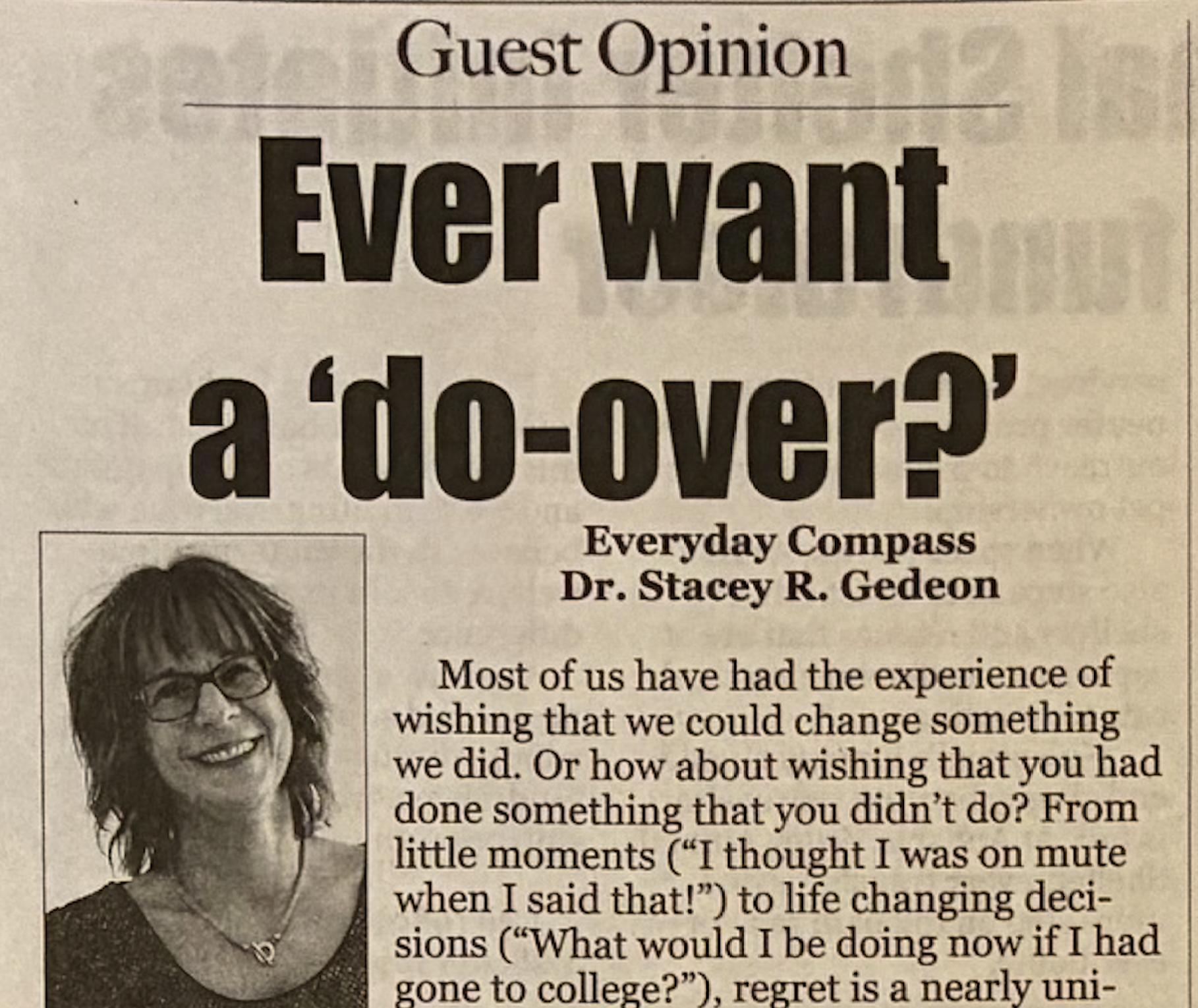Houghton Lake Resorter | Ever Want a ‘Do-Over?’
Most of us have had the experience of wishing that we could change something we did. Or how about wishing that you had done something that you didn’t do? From little moments (“I thought I was on mute when I said that!”) to life changing decisions (“What would I be doing now if I had gone to college?”), regret is a nearly universal experience. It’s defined as a negative emotional state arising from comparing what happened to what could have happened if you had acted differently. Put another way, regret is that sinking feeling when you wish you could rewind time and have a ‘do-over.’
Not all actions leading to regret are equal in magnitude, so it makes sense that the strategies to manage them differ. Smaller regrets are often brief, situational, and about slip-ups or missed opportunities in daily life. For example, saying something sarcastic that didn’t land well or not speaking up in a meeting when you had a great idea. Here are three tips to regroup from minor events: 1) Perspective shift – remind yourself that others likely forgot what you did/didn’t do quickly, 2) Self-compassion – be kind to yourself and if you can, laugh at the moment, and 3) Learn and adjust – treat the experience as feedback for the future.
Then there are the postponed, long-term, or “bigger” regrets we experience. These are larger life decisions or opportunities missed that carry emotional weight over years. Some examples include staying in an unhealthy relationship too long or not taking the risk of moving to another state for a job opportunity.
One coaching client I worked with was struggling with a big regret. Imagine someone who pursued teaching because it was “the expected thing” in their family. Years later, they realize, “I regret that I never listened to my own voice. I did what everyone else thought I should do and I have wasted years of my life.” That regret left them feeling stuck and resentful. In coaching, we worked on reconnecting with their own values and passions. It turned out they had always dreamed of running a small business. And then came this common barrier, “I’ve already invested so much time and energy in teaching. If I walk away now, all of that will be wasted.” This is referred to as the sunk cost fallacy – when you allow your investment of time, money, and energy to prevent you from making changes. We then worked on reframing that thinking. Those years in the classroom weren’t wasted at all – they built communication, organization, and leadership skills that could transfer directly into running a business. By starting small and testing the waters, this teacher was able to build confidence and eventually make the pivot successfully.
Another common example of a bigger regret is staying in an unhealthy relationship. This can be a friendship or a romantic relationship that has become one-sided or even abusive. “But we have so much history together” is a frequent refrain. These situations are incredibly complex, difficult to navigate, potentially dangerous and may require psychotherapy depending on the level of assistance needed.
How do we recover from bigger regrets? Here are five strategies to get you started: 1) Acceptance – acknowledge what happened without judgment, 2) Reframe the narrative – look for growth, skills, or insights gained even if the choice wasn’t perfect, 3) Avoid the sunk cost fallacy – recognize when decisions are being swayed by past investments, 4) Make micro-corrections – small, current-day actions to align your life with what you want to be doing, and 5) Future prevention – use regret as a compass for making more intentional choices that are consistent with your values.
Which do we tend to regret more – the things we didn’t or did do? Research shows that most people regret the things they didn’t do more than the things they did. This holds true even when the things we did turn out badly. The thought is that we may be able to correct past mistakes with effort, but we can’t go back in time and experience the things we missed out on. Ask anyone with a lifetime of wisdom what regrets they have, and you will likely learn about missed opportunities.
By gaining insight, obtaining support, and taking gradual steps, we can successfully navigate both small and big regrets. Using regret as a signal to make changes now prevents you from collecting more over the years.
If you would like to gain more insight and strategies, please reach out for additional guidance. More information on this and other topics can be found on YouTube at UndercomplicatingStuff.
Dr. Stacey R. Gedeon of Roscommon County is a clinical health psychologist and founder of SRG Healthcare Consulting and Professional Coaching, PLLC (srghcc.com). The content of this column is for informational purposes only and does not constitute professional advice or services in her capacity as a licensed psychologist. If you have suggestions for future topics on managing everyday challenges, please submit them to drgedeon@srghcc.com.

